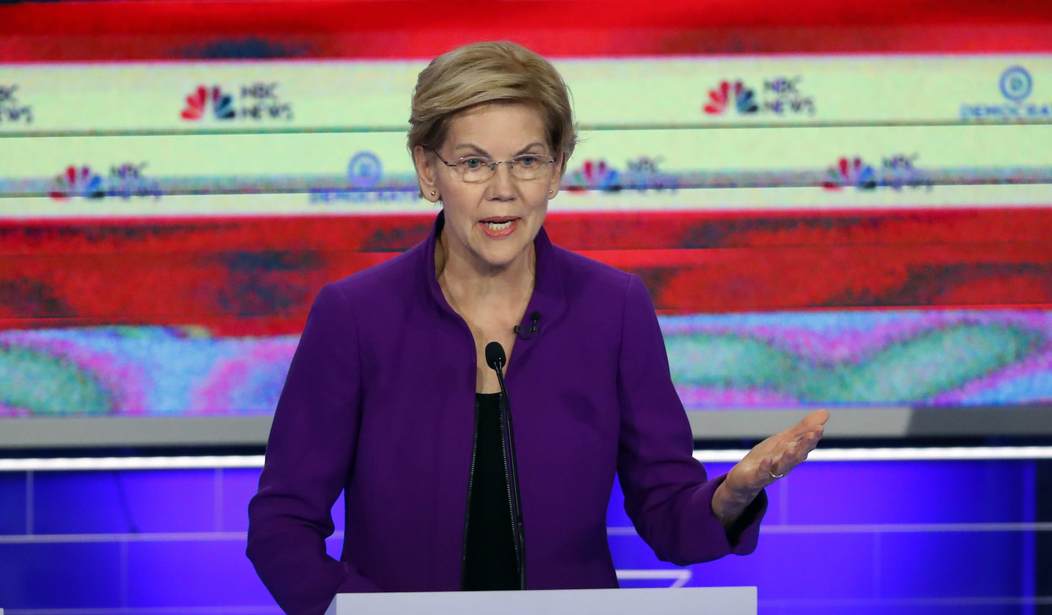“Electability” has been a bugaboo of Democrats this cycle, endlessly debated in party circles. Who among them can defeat Donald Trump?
Trump’s unique appeal has flummoxed the experts since he burst on the scene in 2015. His crossover appeal to certain kinds of Democrats — white, working-class, rural — has made him tough to beat in battleground states like Michigan, Pennsylvania, and Wisconsin.
Which brings us to Elizabeth Warren. The Massachusetts senator has been rising in the polls, drawing enormous crowds, and appearing to have tapped into a populist energy on the left.
But Warren winning Wisconsin? Really?
Political observers in both parties have learned one thing about Elizabeth Warren: don’t underestimate her abilities. She may be a far-left liberal but in this wildly unpredictable electoral atmosphere, anything can happen.
“I think a lot of Democrats — myself included, frankly — underestimated Warren’s ability to generate broad-based appeal,” said Jesse Lehrich, a Democratic strategist who worked on Clinton’s 2016 campaign. “They have run an incredibly disciplined and deliberate campaign, and it’s remarkable how much Warren has improved as a communicator since her first Senate race.”
That growing appreciation for her talent, Democrats say, is part of the reason her candidacy fosters such a electability debate. Other leading candidates like Joe Biden and Bernie Sanders are also the subject of heated arguments over electability.
Republicans and Democratic operatives also wonder what Warren’s message would look like in a general election, suggesting her criticism of Trump could be tailored to appeal to a large audience of swing voters — especially if it centers on the president’s alleged corruption.
Democratic professionals worry most about the party’s support for “Medicare for all.” Even though the idea, in the abstract, is somewhat popular, when pollsters mention its $30 trillion cost over 10 years, approval for the plan drops like a rock.
And what happens when voters really start to concentrate on what it would mean to have a total government takeover of the health care system?
That striking ambivalence within the political community, in fact, can sometimes also exist within the same operative. One Democratic strategist, for example, said he was impressed by the effectiveness of Warren’s campaign and dismissed most of the concerns about her perceived electoral weaknesses, adding that he might vote for her in the primary.
But, a moment later, the same strategist acknowledged that her support for single-payer health care scared the “s**t” out of him.
“Look, she’d be the total package if not for Medicare for All,” said the Democratic strategist, who like many interviewed for this story, requested anonymity to speak candidly. “If there was a Medicare option, I think everybody would be ready to get their saddles and be ready to go.”
That’s just one issue. The total radical package presented by Warren can only vaguely be glimpsed by voters now. But how “electable” will Warren be in November 2020 when the contours of her statist agenda become familiar?
For now, Warren must appeal to the Democratic Party electorate. And that means Democrats falling all over themselves trying to appear more liberal, more radical than the next guy.
And that spells trouble for any of them in “flyover country.”
And even if the big crowds who show up to her rallies are generally a good sign for her candidacy in the primary, those voters are not necessarily the kind she’d need to win a battleground state like Pennsylvania or Wisconsin in a general election.
“The question is, are any of those people Obama-Trump voters?” said Tim Miller, a longtime Republican operative who opposes Trump.
“There are other candidates that I think would certainly be stronger and certainly be weaker,” he continued. “And for her, I’m unclear at this point.”
Trump’s appeal to Obama voters was key to his wins in Wisconsin, Michigan, and Pennsylvania. Would those voters go “home” to the Democratic Party and vote for Warren?
It doesn’t seem likely. Forget head-to-head polls between Trump and any Democratic candidate at this point. Without being able to focus on one, single Democratic challenger, voters are all over the lot. But once the campaign begins in earnest and Trump begins to zero in on what Warren is really trying to sell, it’s likely that the race will tighten considerably.










Join the conversation as a VIP Member